[삼겹살]10 Things You Learned In Preschool That Can Help You In Workers Compen…
34
2023.01.12 05:03
짧은주소
본문
Workers Compensation Legal - What You Need to Know
A lawyer for workers' compensation can assist you in determining whether you're entitled to compensation. A lawyer can help you find the most effective compensation for your claim.
The minimum wage law isn't relevant in determining if workers are considered to be workers.
It doesn't matter if you're an experienced lawyer or novice the knowledge you have of how to manage your business is not extensive. Your contract with your boss is a good place to begin. After you have dealt with the details then you should consider the following: What kind of pay is most appropriate for your employees? What are the legal requirements to be considered? How can you manage employee turnover? A good insurance policy will ensure you are covered in the event that the worst should happen. In addition, you must figure out how to keep your company running as an efficient machine. You can do this by reviewing your working schedule, making sure that your employees are wearing the right kind of clothing and ensuring that they adhere to the guidelines.
Personal risks resulting in injuries are not compensable
Generallyspeaking, an "personal risk" is one that isn't related to employment. Under the Workers Compensation law the risk can only be considered to be work-related when it is a part of the scope of work.
An example of a work-related risk is the chance of becoming a victim of a workplace crime. This includes crimes that are intentionally committed against employees by unmotivated individuals.
The legal term "eggshell" refers to a traumatizing incident that takes place during an employee's work. In this instance the court decided that the injury was caused by an accident that involved a slip and fall. The claimant was a corrections officer and experienced a sharp pain in his left knee when he went up the stairs of the facility. The itching was treated by him.
Employer claimed that the injury was accidental or caused by idiopathic causes. According to the judge this is a difficult burden to meet. Contrary to other risks that are only related to employment, the idiopathic defense requires an obvious connection between the work and the risk.
An employee is considered to be at risk if the incident was unavoidable and was caused by a specific work-related cause. If the injury occurs abruptly and is violent and it causes objective symptoms, then it's related to employment.
Over time, the criteria for legal causation is evolving. For example the Iowa Supreme Court has expanded the legal causation requirement to include mental-mental injuries, safety harbor workers' compensation Law firm or sudden trauma events. The law mandated that an employee's injury must be caused by a specific job risk. This was done to prevent an unfair recovery. The court noted that the idiopathic defense could be interpreted to favor inclusion.
The Appellate Division decision shows that the Idiopathic defense is difficult to prove. This is contrary to the premise that underlies the workers' compensation legal theory.
A workplace injury is considered to be a result of employment only if it's abrupt violent, violent, or causes objective symptoms. Typically the claim is filed according to the law in force at the time of the accident.
Employers were able to avoid liability through defenses against contributory negligence
Workers who suffered injuries on the job did not have any recourse against their employers until the latter part of the nineteenth century. They relied on three common law defenses in order to keep themselves from liability.
One of these defenses, referred to as the "fellow-servant" rule was used to block employees from recovering damages when they were injured by co-workers. To avoid liability, another defense was the "implied assumptionof risk."
To limit plaintiffs' claims, many states today use an approach that is more fair, referred to as comparative negligence. This is the process of dividing damages based upon the severity of fault among the parties. Some states have adopted the concept of pure negligence, while others have altered them.
Based on the state, injured employees can sue their employer, case manager or insurance company for the damages they suffered. Often, the damages are determined by lost wages or other compensation payments. In cases of wrongful termination the damages are usually based on the plaintiff's lost wages.
Florida law allows workers who are partly at fault for an injury to stand a better chance of getting workers' compensation attorney in portola valley compensation. Florida adopted the "Grand Bargain" concept to allow injured workers who are partially responsible for their injuries to receive compensation.
In the United Kingdom, the doctrine of vicarious liability first came into existence around the year 1700. In Priestly v. Fowler, an injured butcher was unable to seek damages from his employer since the employer was a fellow servant. The law also established an exception for fellow servants in the event that the employer's negligent actions caused the injury.
The "right to die" contract, which was widely used by the English industrial sector also restricted workers rights. However, the reform-minded public slowly demanded changes to the workers' compensation attorney in port orange compensation system.
While contributory negligence was once a method to avoid liability, it's been abandoned by most states. In most instances, the amount of fault is used to determine the amount of damages an injured worker is given.
In order to collect the amount due, the injured worker must demonstrate that their employer was negligent. They can prove this by proving the employer's intention and the likelihood of injury. They must also prove that the injury was the result of the negligence of their employer.
Alternatives to Workers' Compensation
Many states have recently permitted employers to leave workers compensation. Oklahoma led the way with the new law that was passed in 2013 and lawmakers in other states have expressed interest. The law has yet to be implemented. In March, the Oklahoma brooklyn center workers' compensation law firm Compensation Commission ruled that the opt-out law violated Oklahoma's equal protection clause.
A group of large companies in Texas as well as several insurance-related companies formed the Association for Responsible Alternatives to Workers' Compensation (ARAWC). ARAWC is a non-profit organization that offers an alternative to the workers' compensation attorney cameron compensation system and employers. It also wants to improve benefits and cost savings for employers. ARAWC's goal is to work with the stakeholders in every state to create a single measure that would cover all employers. ARAWC has its headquarters in Washington, D.C., but is currently holding exploratory meetings in Tennessee.
ARAWC plans and similar organizations provide less coverage than traditional workers' compensation plans. They also control access to doctors and can force settlements. Certain plans limit benefits at a younger age. Moreover, most opt-out plans require employees to notify their injuries within 24 hours.
Some of the largest employers in Texas and Oklahoma have adopted these workplace injury plans. Cliff Dent, of Dent Truck Lines, says that his company has been able to reduce its costs by approximately 50 percent. He also said that Dent does not intend to return to traditional safety harbor workers' compensation law firm compensation. He also pointed out that the plan doesn't provide coverage for injuries from prior accidents.
The plan doesn't allow employees to sue their employers. Rather, it is controlled by the federal Employee Retirement Income Security Act (ERISA). ERISA requires that these organizations forfeit certain protections for traditional workers' compensation attorney in kalispell compensation. They also have to give up their immunity from lawsuits. They get more flexibility in terms of coverage in return.
Opt-out worker's compensation plans are regulated under the Employee Retirement Income Security Act (ERISA) as welfare benefit plans. They are guided by a set guidelines that guarantee proper reporting. In addition, the majority of employers require employees to notify their employers of any injuries by the end their shift.
A lawyer for workers' compensation can assist you in determining whether you're entitled to compensation. A lawyer can help you find the most effective compensation for your claim.
The minimum wage law isn't relevant in determining if workers are considered to be workers.
It doesn't matter if you're an experienced lawyer or novice the knowledge you have of how to manage your business is not extensive. Your contract with your boss is a good place to begin. After you have dealt with the details then you should consider the following: What kind of pay is most appropriate for your employees? What are the legal requirements to be considered? How can you manage employee turnover? A good insurance policy will ensure you are covered in the event that the worst should happen. In addition, you must figure out how to keep your company running as an efficient machine. You can do this by reviewing your working schedule, making sure that your employees are wearing the right kind of clothing and ensuring that they adhere to the guidelines.
Personal risks resulting in injuries are not compensable
Generallyspeaking, an "personal risk" is one that isn't related to employment. Under the Workers Compensation law the risk can only be considered to be work-related when it is a part of the scope of work.
An example of a work-related risk is the chance of becoming a victim of a workplace crime. This includes crimes that are intentionally committed against employees by unmotivated individuals.
The legal term "eggshell" refers to a traumatizing incident that takes place during an employee's work. In this instance the court decided that the injury was caused by an accident that involved a slip and fall. The claimant was a corrections officer and experienced a sharp pain in his left knee when he went up the stairs of the facility. The itching was treated by him.
Employer claimed that the injury was accidental or caused by idiopathic causes. According to the judge this is a difficult burden to meet. Contrary to other risks that are only related to employment, the idiopathic defense requires an obvious connection between the work and the risk.
An employee is considered to be at risk if the incident was unavoidable and was caused by a specific work-related cause. If the injury occurs abruptly and is violent and it causes objective symptoms, then it's related to employment.
Over time, the criteria for legal causation is evolving. For example the Iowa Supreme Court has expanded the legal causation requirement to include mental-mental injuries, safety harbor workers' compensation Law firm or sudden trauma events. The law mandated that an employee's injury must be caused by a specific job risk. This was done to prevent an unfair recovery. The court noted that the idiopathic defense could be interpreted to favor inclusion.
The Appellate Division decision shows that the Idiopathic defense is difficult to prove. This is contrary to the premise that underlies the workers' compensation legal theory.
A workplace injury is considered to be a result of employment only if it's abrupt violent, violent, or causes objective symptoms. Typically the claim is filed according to the law in force at the time of the accident.
Employers were able to avoid liability through defenses against contributory negligence
Workers who suffered injuries on the job did not have any recourse against their employers until the latter part of the nineteenth century. They relied on three common law defenses in order to keep themselves from liability.
One of these defenses, referred to as the "fellow-servant" rule was used to block employees from recovering damages when they were injured by co-workers. To avoid liability, another defense was the "implied assumptionof risk."
To limit plaintiffs' claims, many states today use an approach that is more fair, referred to as comparative negligence. This is the process of dividing damages based upon the severity of fault among the parties. Some states have adopted the concept of pure negligence, while others have altered them.
Based on the state, injured employees can sue their employer, case manager or insurance company for the damages they suffered. Often, the damages are determined by lost wages or other compensation payments. In cases of wrongful termination the damages are usually based on the plaintiff's lost wages.
Florida law allows workers who are partly at fault for an injury to stand a better chance of getting workers' compensation attorney in portola valley compensation. Florida adopted the "Grand Bargain" concept to allow injured workers who are partially responsible for their injuries to receive compensation.
In the United Kingdom, the doctrine of vicarious liability first came into existence around the year 1700. In Priestly v. Fowler, an injured butcher was unable to seek damages from his employer since the employer was a fellow servant. The law also established an exception for fellow servants in the event that the employer's negligent actions caused the injury.
The "right to die" contract, which was widely used by the English industrial sector also restricted workers rights. However, the reform-minded public slowly demanded changes to the workers' compensation attorney in port orange compensation system.
While contributory negligence was once a method to avoid liability, it's been abandoned by most states. In most instances, the amount of fault is used to determine the amount of damages an injured worker is given.
In order to collect the amount due, the injured worker must demonstrate that their employer was negligent. They can prove this by proving the employer's intention and the likelihood of injury. They must also prove that the injury was the result of the negligence of their employer.
Alternatives to Workers' Compensation
Many states have recently permitted employers to leave workers compensation. Oklahoma led the way with the new law that was passed in 2013 and lawmakers in other states have expressed interest. The law has yet to be implemented. In March, the Oklahoma brooklyn center workers' compensation law firm Compensation Commission ruled that the opt-out law violated Oklahoma's equal protection clause.
A group of large companies in Texas as well as several insurance-related companies formed the Association for Responsible Alternatives to Workers' Compensation (ARAWC). ARAWC is a non-profit organization that offers an alternative to the workers' compensation attorney cameron compensation system and employers. It also wants to improve benefits and cost savings for employers. ARAWC's goal is to work with the stakeholders in every state to create a single measure that would cover all employers. ARAWC has its headquarters in Washington, D.C., but is currently holding exploratory meetings in Tennessee.
ARAWC plans and similar organizations provide less coverage than traditional workers' compensation plans. They also control access to doctors and can force settlements. Certain plans limit benefits at a younger age. Moreover, most opt-out plans require employees to notify their injuries within 24 hours.
Some of the largest employers in Texas and Oklahoma have adopted these workplace injury plans. Cliff Dent, of Dent Truck Lines, says that his company has been able to reduce its costs by approximately 50 percent. He also said that Dent does not intend to return to traditional safety harbor workers' compensation law firm compensation. He also pointed out that the plan doesn't provide coverage for injuries from prior accidents.
The plan doesn't allow employees to sue their employers. Rather, it is controlled by the federal Employee Retirement Income Security Act (ERISA). ERISA requires that these organizations forfeit certain protections for traditional workers' compensation attorney in kalispell compensation. They also have to give up their immunity from lawsuits. They get more flexibility in terms of coverage in return.
Opt-out worker's compensation plans are regulated under the Employee Retirement Income Security Act (ERISA) as welfare benefit plans. They are guided by a set guidelines that guarantee proper reporting. In addition, the majority of employers require employees to notify their employers of any injuries by the end their shift.






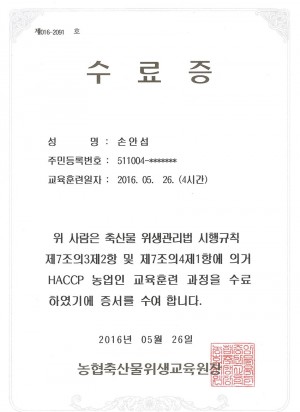
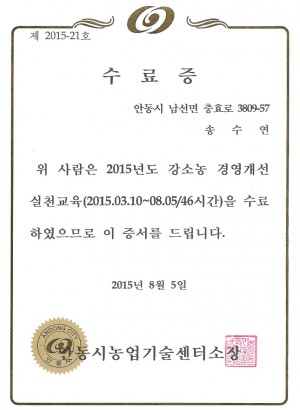
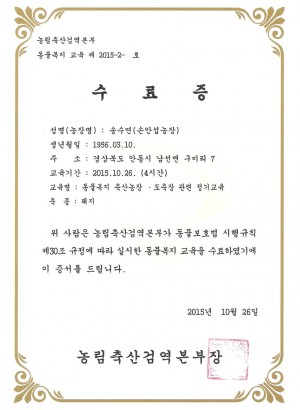
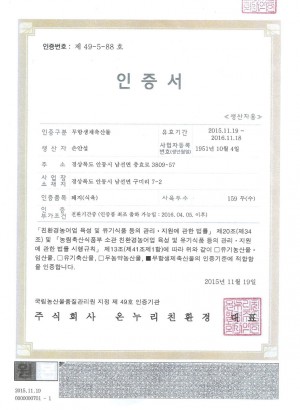
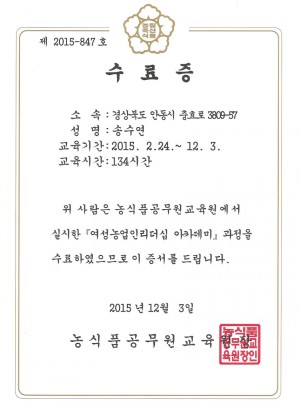
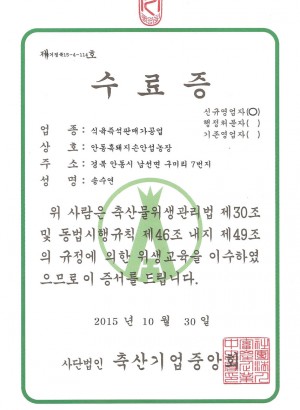

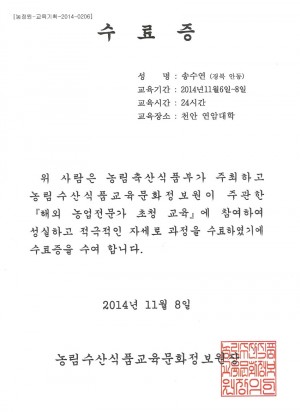

댓글목록
등록된 댓글이 없습니다.